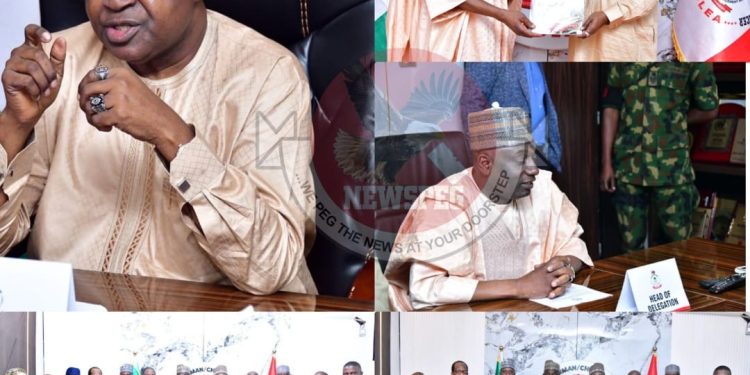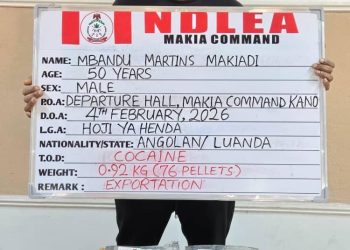By Nkechi Eze
In a significant boost to the ongoing fight against drug trafficking and abuse in Nigeria, the leadership of the Nigerian Association of Road Transport Owners (NARTO) has pledged to collaborate closely with the National Drug Law Enforcement Agency (NDLEA) to prevent the use of trucks and passenger vehicles for the movement of illicit substances across the country’s road network.
The commitment was made on Thursday, July 24, 2025, when the National President of NARTO, Alhaji Yusuf Lawal Othman, led a delegation of the association’s executives on a courtesy visit to the Chairman and Chief Executive Officer of the NDLEA, Brigadier General Mohamed Buba Marwa (Rtd), at the Agency’s National Headquarters in Abuja.
In an official statement issued by the NDLEA’s Director of Media and Advocacy, Femi Babafemi, Othman commended Marwa’s courage, vision, and patriotic leadership of the anti-narcotics agency. He said the visit was not merely ceremonial, but a reflection of NARTO’s appreciation of the Agency’s relentless work and the association’s readiness to be an active stakeholder in curbing the drug menace.
“This visit today is not just ceremonial; it is purposeful and timely. It reflects our deep appreciation of NDLEA’s efforts and our readiness as a key stakeholder in the road transport sector to align with your mission,” Othman said.
He acknowledged the strategic role NARTO plays in Nigeria’s economic and social landscape, noting that the association’s trucks and passenger vehicles crisscross every region, connecting communities and enabling commerce. However, he lamented that these same channels are sometimes exploited by criminal elements to traffic drugs.
“NARTO is acutely aware of the burden we carry. Our trucks and passenger vehicles traverse every region of the country, serving as the arteries of commerce and connectivity. However, we also recognize that these same routes are occasionally exploited by criminal elements to traffic illicit substances. We at NARTO are committed to reversing that narrative,” he stated.
To strengthen the partnership with NDLEA, Othman proposed several key initiatives, including the sensitization and training of NARTO drivers and transport operators on how to identify and report suspicious cargo or behaviour; the creation of a joint intelligence-sharing framework to track drug trafficking routes and techniques; the deployment of NDLEA liaison officers at major NARTO parks and depots nationwide; and the rollout of public awareness campaigns using NARTO’s national network to educate drivers and passengers on the dangers of drug trafficking and abuse.
“Our highways must not be used to harm our nation. We want to see a transport industry that supports security, safety, and the health of our communities,” he declared, reaffirming NARTO’s strong stance against drugs.
In his response, NDLEA Chairman/CEO Brig Gen Mohamed Buba Marwa (Rtd) welcomed the gesture and expressed delight at the association’s willingness to partner in safeguarding Nigeria’s transportation corridors from drug traffickers.
“I have had a good relationship with NARTO since my days in Lagos, and I’m glad you’re concerned about the drug problem in Nigeria. We are more than ready to collaborate with you at your parks and depots,” Marwa said.
He advised transport owners to conduct background checks on drivers entrusted with their vehicles, warning that many drug syndicates take advantage of unsuspecting transporters. He said such diligence would help prevent the risk of vehicle seizure by authorities or the loss of lives in accidents resulting from drug-impaired driving.
“This will save the transport vehicle owners the risk of losing their vehicles in avoidable crashes or to the government in case they’re caught being used as instruments of illicit drug trafficking,” he cautioned.
The renewed alliance between NDLEA and NARTO comes as part of the Agency’s intensified offensive against drug trafficking and abuse, a campaign that has recorded major arrests, seizures, and community-level interventions in recent years. With the involvement of critical stakeholders in the transport sector, authorities say the battle is gradually shifting towards a national movement driven by shared responsibility.















